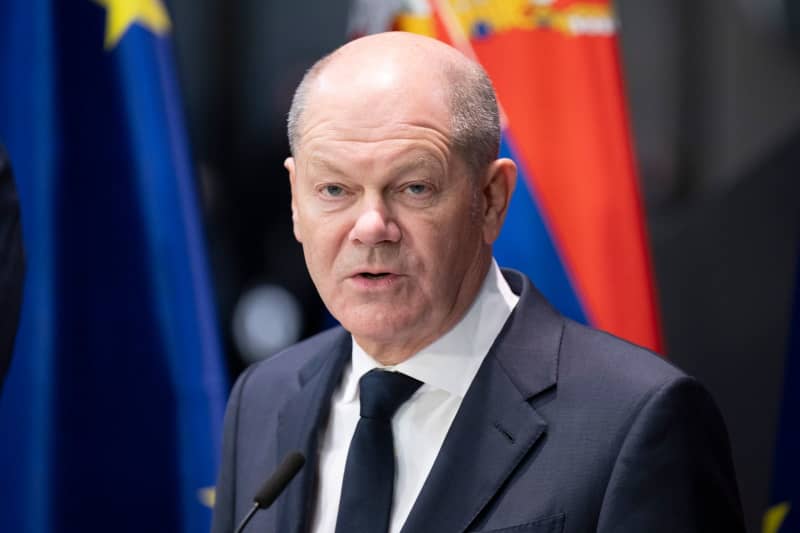The upcoming German-Ukrainian Economic Forum in Berlin on Wednesday highlights the enduring economic resilience of Ukraine as it faces ongoing challenges stemming from nearly three years of a full-scale Russian invasion. This significant event is set to feature prominent representatives from both governments, indicating a strong commitment to fostering bilateral relations amid the ongoing conflict. Chancellor Olaf Scholz, Economy Minister Robert Habeck, and Development Minister Svenja Schulze will represent Germany, while Ukraine will be represented by Prime Minister Denys Shmyhal, Deputy Prime Minister Yulia Svyrydenko, and Energy Minister Herman Halushchenko, all of whom are pivotal in navigating their respective countries through this tumultuous period.
A primary focus of the forum will be Ukraine’s energy supply, which is particularly pressing as the nation enters its third winter of war. Russian attacks have severely damaged infrastructure critical for energy distribution and supply, complicating the challenges faced by both the government and the general populace. The discussions will likely center around potential solutions to bolster energy security and resilience, emphasizing the importance of international support in repairing and upgrading the existing systems. As energy resilience directly impacts economic stability and recovery, this topic will be crucial for understanding Ukraine’s ongoing needs and the potential role of German expertise and investment in addressing those needs.
In addition to energy concerns, the forum will also address the burgeoning cooperation between German and Ukrainian arms companies. Defense industries have become increasingly important for both countries in the context of the ongoing war, and forging stronger partnerships in this realm can enhance Ukraine’s military capabilities while providing German companies with new opportunities in a rapidly evolving geopolitical landscape. Exploring this collaboration not only strengthens defense ties but also promotes technological exchanges and innovations critical for modern warfare, highlighting how the war has catalyzed shifts in traditional economic relationships.
Bilateral trade figures for 2023 reflect a dynamic economic relationship despite the pressures of war. Germany has exported goods worth €6.9 billion ($8.8 billion) to Ukraine, while imports from Ukraine have been recorded at €2.9 billion. These trade figures are indicative of the interconnectedness and mutual dependencies that have developed between the two nations, underscoring the importance of maintaining strong economic channels even amidst external aggressions. The trade landscape has seen Ukraine exporting predominantly agricultural products, automotive parts, and food, showcasing the sectors where Ukraine retains strong capabilities and the potential for future growth, particularly with German markets which value such commodities.
Organizers of the forum emphasize that the discussions will not only revolve around energy and defense but will also delve into broader economic resilience strategies. The focus on long-term sustainability in the face of adversity reflects an understanding that Ukraine’s recovery will require innovative approaches and sustained support from allies. As the country navigates the complexities associated with war and reconstruction, fostering international partnerships through forums such as this will be critical in ensuring that Ukraine can emerge from this conflict stronger and more economically viable.
Ultimately, the German-Ukrainian Economic Forum stands as a vital platform for dialogue and collaboration that seeks to fortify economic ties while addressing pressing challenges. The participation of high-level officials underscores the significance of this event not merely as a response to current challenges but also as an investment in the future of Ukraine’s economy and its integration into a broader European context. The outcomes of the forum have the potential to shape the next steps in Ukraine’s economic journey, paving the way for a resilient recovery and constructive partnerships that extend beyond wartime exigencies.

